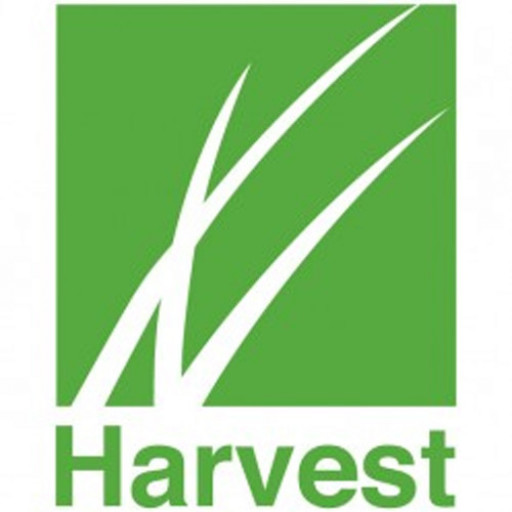Photos of university / #ouranu
The Master of Museum and Heritage Studies draws on our strong connections with Canberra's leading cultural and collecting institutions to prepare you for an innovative career in this field. Our local and national links mean you'll regularly hear from senior institutional staff in classes, and can learn on the ground through our internship program.
Our academics are international leaders in research in the field, and the masters offers a range of specialisations in either museum or heritage studies. Within the museum specialisation you'll learn traditional curatorship and collections management, in addition to new areas such as such as social inclusion, citizenship and community engagement, social activism and museums, Indigenous curation and collection, and innovative visitor studies. The cultural and environmental heritage specialisation offers you the opportunity to analytically address and assess national and international policy and practices in the context of a critical framework that explores the political and social phenomenon and impacts of heritage and its management and conservation.
Career Options
Learning Outcomes
Upon successful completion, students will have the skills and knowledge to:
- analyse, research, reflect on and synthesise complex approaches to museums and collecting agencies and their relationships to societies;
- evaluate significant debates, problems, controversies, concepts and theories pertinent to museums and collections;
- develop critical engagement with, and a working knowledge of, museums and collecting agencies; and
- communicate and interpret knowledge and ideas to general and specialists museum audiences.
The Master of Museum and Heritage Studies requires completion of 96 units, which must consist of:
24 units from completion of one of the following specialisations:
Cultural and Environmental Heritage
Museums and Collections
Museum Education and Heritage Interpretation
A minimum of 12 units from completion of research courses from the following list:
HUMN8007 - Cultural and environmental heritage research project
HUMN8012 - Writing, World Histories and Lives research project
HUMN8013 - Writing, World Histories and Lives special topic
HUMN8017 - Writing World Histories and Lives: Extended Research Project
HUMN8018 - Cultural and Environmental Heritage: Extended Research Project
HUMN8022 - Physical Conservation of Historic Heritage Places
HUMN8023 - Human Rights and Humanitarian Law
HUMN8024 - Digital Humanities: Theories and Projects
HUMN8026 - Writing in the Public Sphere
HUMN8027 -Critical Issues in Heritage and Museum Studies
MUSC8004 - Internship 1
MUSC8005 - Internship 2
MUSC8008 - Museums, Art and Society in the Asia-Pacific
MUSC8009 - Museums and Collections research project
MUSC8011 - Museums and Collections: Extended Research Project
A maximum of 36 units from completion of courses on the following list:
ARCH8104 An Introduction to Cultural and Environmental Heritage
ARTH6045 Curatorship Theory and Practice
ARTV8100 Points Of View
ARTV8107 Arguing Objects
HUMN8006 Best Practice in Managing Heritage Places
HUMN8008 World Rock Art: Global Perspectives on Rock Art Research
HUMN8009 Biography and Society
HUMN8010 Material Culture Studies
HUMN8019 World Heritage: conserving cultural heritage values
HUMN8027 Critical Issues in Heritage and Museums Studies
MUSC8006 Indigenous Collections and Exhibitions
MUSC8012 Understanding Learning in Museums and Heritage
MUSC8013 Museum Education and Heritage Interpretation Study Tour
MUSC8016 Museum Learning: The Politics of Dress
MUSC8017 Museums and Collections: Key Concepts and Practices
MUSC8018 Exhibition Design and Delivery
24 units from completion of elective courses offered by ANU
Specialisations
- Cultural and Environmental Heritage
- Museum Education and Heritage Interpretation
- Museums and Collections
A Bachelor degree or international equivalent with an average mark of at least 65%
All applicants must meet the University's English Language Admission Requirements for Students
Applicants with a Bachelor Degree or Graduate Certificate in a cognate discipline may be eligible for 24 units (one semester) of credit.
Applicants with a Graduate Diploma or Honours in a cognate discipline may be eligible for 48 units (one year) of credit.
Cognate disciplines
History, Ancient History, Museum Studies, Politics, Sociology, Archaeology, Social Sciences, Philosophy, English, Gender Studies; Fine Arts; Creative Arts; Anthropology; Classics; English; Environmental Management; Environmental History; Visual Arts.
Want to improve your English level for admission?
Prepare for the program requirements with English Online by the British Council.
- ✔️ Flexible study schedule
- ✔️ Experienced teachers
- ✔️ Certificate upon completion
📘 Recommended for students with an IELTS level of 6.0 or below.
ANU offers a wide range of scholarships to students to assist with the cost of their studies.
Eligibility to apply for ANU scholarships varies depending on the specifics of the scholarship and can be categorised by the type of student you are. Specific scholarship application process information is included in the relevant scholarship listing.






